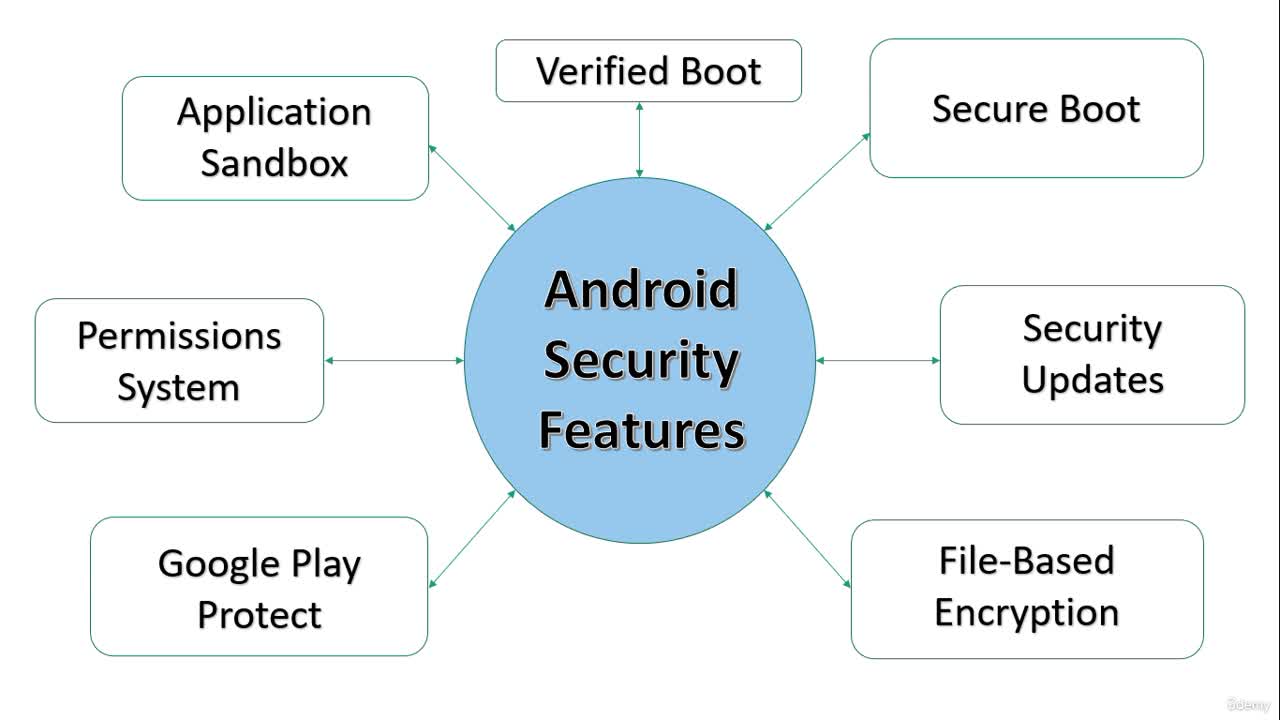**Android Operating System:**
**1. What is Android?**
Android is an open-source operating system designed primarily for mobile devices such as smartphones and tablets. It is based on the Linux kernel and developed by the Open Handset Alliance, led by Google.
**2. User Interface:**
Android provides a user-friendly interface with a customizable home screen and support for widgets, allowing users to personalize their devices.
**3. App Ecosystem:**
The Android operating system supports a vast ecosystem of applications available for download on the Google Play Store. These apps cover a wide range of categories, from productivity to entertainment.
**4. Open Source Nature:**
Android's open-source nature means that its source code is freely available, allowing developers to modify and distribute their own versions of the operating system.
**5. Versions and Releases:**
Android has gone through numerous version updates, each named after a dessert in alphabetical order. Examples include KitKat, Lollipop, Marshmallow, Nougat, Oreo, Pie, and more. Each version introduces new features, improvements, and security updates.
**6. Google Services Integration:**
Android tightly integrates with various Google services such as Gmail, Google Maps, Google Drive, and more. This integration enhances the overall user experience and productivity.
**7. Customization and Flexibility:**
One of Android's strengths is its customization options. Users can choose from a variety of devices with different hardware specifications and can personalize the look and feel of their devices.
**8. Security Features:**
Android includes robust security features, including app sandboxing, encryption, and regular security updates. Google Play Protect helps safeguard devices by scanning apps for potential threats.
**9. Multitasking and Notification System:**
Android supports multitasking, allowing users to run multiple applications simultaneously. The notification system keeps users informed about messages, updates, and other events.
**10. Device Diversity:**
Android powers a wide range of devices beyond smartphones and tablets, including smart TVs, smartwatches, and other IoT (Internet of Things) devices.
**11. Android Studio:**
Android Studio is the official integrated development environment (IDE) for Android app development. It provides tools for designing, coding, testing, and debugging Android applications.
**12. Android One and Go Edition:**
Android One is a version of the Android operating system designed for budget-friendly smartphones with timely updates. Android Go Edition is a lightweight version optimized for entry-level devices with limited resources.
Android's widespread adoption, flexibility, and extensive developer community contribute to its dominance in the mobile operating system market.
- Telegram Android Talk – Join
- Android Themes Channel – Join
- Telegram APKs for Android – Join
- Android Themes – Join
- Android Lover – Join
- Apk – Join
- New Games – Join
- Best All Android Games – Join
- Android New Games – Join
- Android Themes Channel – Join
- All AIOSetup – Join
- Android Results – Join
- Computer Science – Join
- Front End Devs – Join
- Gadget News – Join
- Linux Gram – Join
- Programming Hub – Join
- ROM Mods – Join
- Tech Geeks – Join
- Tech Guide – Join
- Web Dave – Join
- Clash Of Clans Official – Join
- Android Application – Join
2. Android Architecture:
Android follows a layered architecture with four main components: the Linux kernel, libraries and runtime, application framework, and applications. This architecture enables developers to create robust and versatile applications.
4. Android Security Features: Android places a strong emphasis on security. Key security features include app sandboxing, secure inter-process communication, full-disk encryption, and regular security updates.
5. Android Application Lifecycle: Android applications go through different states in their lifecycle, including the creation, starting, running, pausing, stopping, and destroying phases. Understanding the lifecycle is crucial for effective app development.
6. Material Design: Material Design is a design language introduced by Google for Android applications. It emphasizes clean, responsive layouts, subtle animations, and a consistent look and feel across different devices.
7. Android Enterprise: Android Enterprise is a set of tools and services for business use. It includes features like device management, application deployment, and security controls to meet the needs of enterprise-level users.
8. Android for Wearables: Android extends beyond traditional mobile devices to power wearables like smartwatches. Android Wear, now called Wear OS, offers a platform for developing applications tailored for smaller, wearable screens.
9. Android TV: Android TV is a version of the Android operating system designed for smart TVs. It provides a user-friendly interface optimized for television screens and supports various streaming apps.
10. Android Auto: Android Auto integrates Android with car infotainment systems. It offers a safer way to use Android devices while driving, with features like navigation, music, and voice commands.











